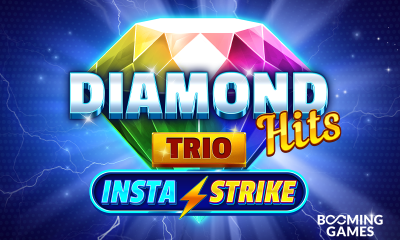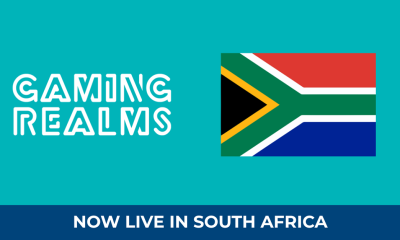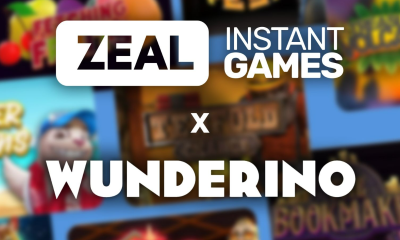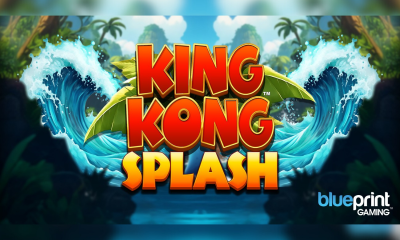Interviews
Branding & shaping the perfect corporate image
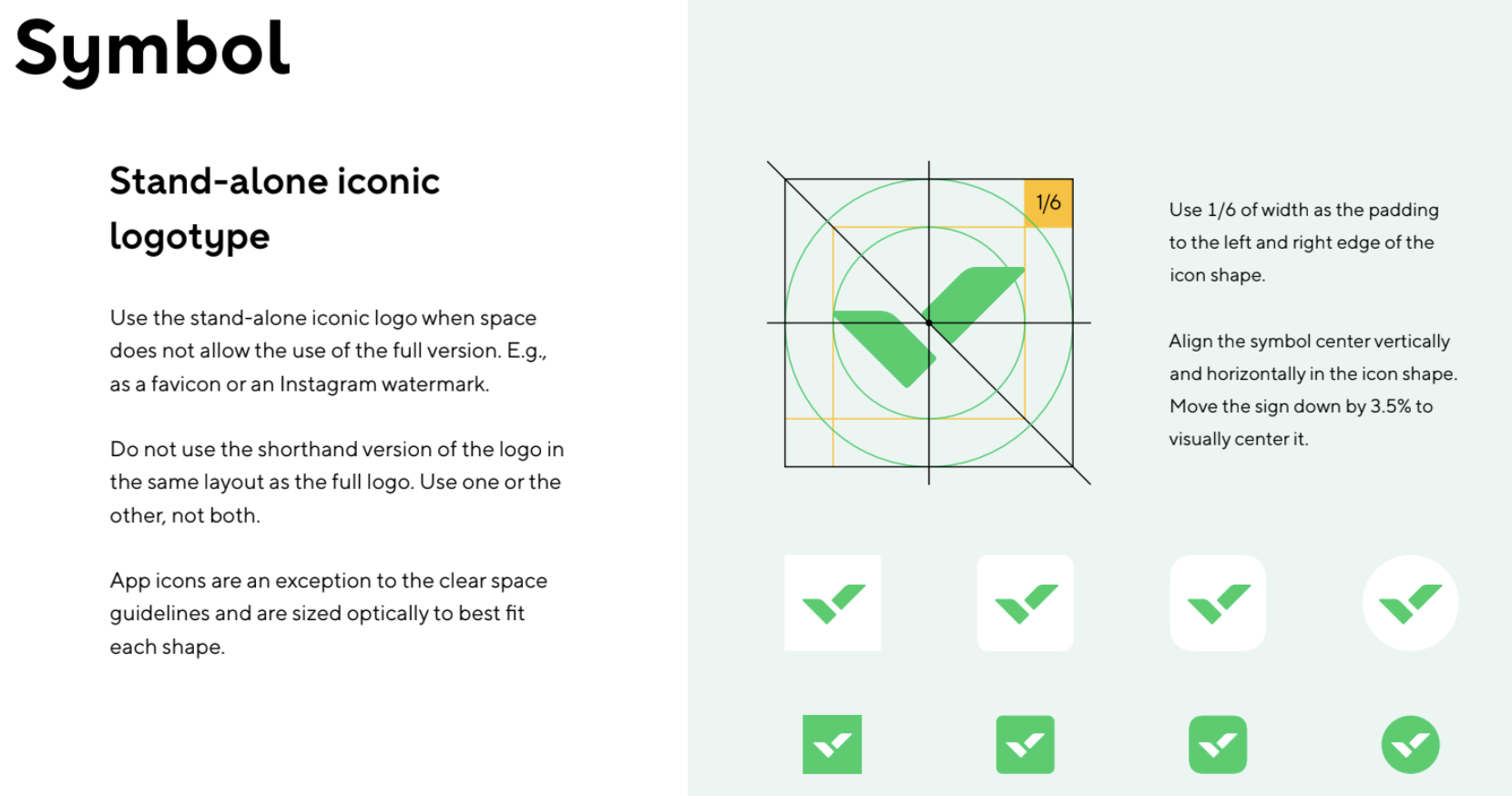
What’s in a name?
Branding is key for operators, but shaping the perfect corporate image is also important in the ultra-competitive world of iGaming studios. In this feature, we look at the reasons why already successful suppliers would seek to craft fresh identities.
What key factors are taken into consideration when creating a fresh identity for a games studio?
Joey Hurtado, Managing Director of Games at Wizard Games: In this saturated market, it is important that we focus on our distinct competitive advantages. This boils down to what we can provide for our partners, based on a level of experience and knowledge within our ranks that we believe is up there with the best in the industry. At Wizard Games, we have assembled a wonderful management team with decades of experience in the industry and a studio team that boasts tons of creativity. Add to the mix an extensive network of operators who are already offering our games, extremely fast integration capabilities, the tournament tools offered by Pariplay, and the support of our solid public parent company, Aspire Global, and it is clear that our brand stands out from the crowd. We know the market and our finger is on the pulse of what players want across major industry operators. This gives us the advantage of creating exactly the sort of content people are looking for in different markets.
Yanina Kaplya, Head of Marketing at BetGames: There are many reasons for creating or updating a brand image for a games studio, (or indeed any other type of business). This can range from reputational and international expansion or repositioning to reflect a company’s new vision. Depending on the exact reasons driving it, there will be external factors such as target market trends and culture, the wider industry and product portfolio – and of course, the brand’s archetype. Internal factors can also include how we see and position ourselves, as well as the mission, vision, and value of the company not only as a product provider but also as an employer. Invariably, a company may need help from an external consultancy to see the bigger picture, while some companies decide to create their own brand image and identity in-house, as they have internal brand ambassadors who can show them the way to go. Defining your brand personality, your target audiences’ preferences, and value proposition can help greatly in setting a clear identity for a company. Looking at the gaming market today, we can see competition is fierce and every brand wants to cultivate uniqueness through product or brand identity and messaging to be able to differentiate itself.
Vladimir Malakchi, CCO at Evoplay: The concept of a brand is much more fundamental to a game studio or developer, at Evoplay we are in the fortunate position of being a brand that has a proactive philosophy on creating games, this is something not everyone in the industry has. Having a clear brand identity makes it very easy for partners and consumers alike to understand the company’s position and how it conducts itself across its markets. It’s the perfect reflection of a company’s vision, goals, and ambitions. When it comes to making an impact on the global stage – the most important is a well-formed brand compass that will be the landmark and goal behind every step of the company – vision, mission, values, strategic goals, and purpose as a business. Since the main barometer of a gaming studio’s value is the games it provides, it is crucial to understand the uniqueness of the games being created by the company, as well as what it means to the player and partner, and how it will be perceived by competitors. These insights foster a path for the company’s development and lay the foundations for further activity.
Stay close to an existing well-known brand, or move in a completely new direction: what persuaded you to move down one route or the other?
Malakchi: I wouldn’t say that Evoplay started moving in a completely new direction after the rebranding. The rebrand was about creating a new starting point in the Evoplay story and a transition to a new level, which is quite logical and harmonious in light of the great achievements made in the last 2 years. It serves as recognition of the experience we have gained over 3 years in the market, as well as setting more global goals and methods of achieving them. Some paradigms have remained with us and are still the basis of the company, some have been modified and adapted to new visions and beliefs, and some have been expanded due to stronger capacity and resources.
Kaplya: We are very proud of having built our BetGames brand and product portfolio completely from scratch. Our success has stemmed from our passion for unique products and solutions, which is such that it prevents us from stepping away from our core values and vision. In rebranding, we wanted to keep the vibrant, cool, visual themes of BetGames, as well as our recognizable name, for both our business partners and legions of fans. These factors give us the confidence and knowledge that our brand has a great reputation in the industry and that’s something we want to maintain throughout our lifetime. BetGames recently celebrated its 10th anniversary, and we’ve reflected this important milestone with an evolved business statement, upgrades to our operations, as well as corporate strategy and team alignments. The main driver behind our rebranding was our strategic plan to develop our corporate identity over the next decade. We identified a clear vision on a logo, fonts, color palette, and photography that would reflect how we grew from a start-up to a global entertainment provider.
Hurtado: This was a question that we considered extensively during the brand creation process before we reached the conclusion that our identity should lie within the middle ground between innovation and tradition. We have since focused on transmitting this identity to potential partners by embedding the concept within our brand design, guidelines, product, and every aspect of our communications. We see ourselves as a progressive brand. That means our games are deeply rooted in what players want, which is in the main set of traditional themes and features. From that starting point, we innovate – gradually and not in a disruptive way, incorporating technological advances, creative features, and attractive bonuses, all the way testing the results game by game. So far, this approach is working perfectly. We have achieved notable progression with each game release in terms of reception, which is a testament to our studio team’s hard work in evolving our offering.
Does the name, logo, and presentation of a brand tell a story in itself, or is it all about the games?
Hurtado: The expression of our brand identity is achieved through a combination of the logo, name presentation, and design. The Wizard element represents a wise character who constantly comes up with outstanding creations that nobody expected. As a universally recognizable character from a range of fantasy stories, the appeal is nostalgic while also hinting at the creation of new, surprising solutions. The combination of tradition with modernity is also present within the design of our logo, website, and visual elements.
Kaplya: We do have a story behind our logo. When you look at it – it’s a simple, recognizable, and unique mark that represents BetGames as well as its operating principles. The ‘B’ and ‘G’ in BetGames are combined in our new logo to represent our core value as a people company. It also resembles Superman taking flight, his arms pointing to the sky, which perfectly captures BetGames’ commitment to growth and people. While the diagonal lines mirror our dynamic personality, it is also no coincidence that they are tilted at a 24° angle, the same as the earth on its axis, symbolizing BetGames as a global company. The all-new logo is a modern representation of a company with operating principles and ideals at its heart.
Malakchi: The main goal of Evoplay’s rebranding was to take ownership over our brand identity, positioning the company as one with a unique vision for gambling products and a pragmatic approach to doing business in the industry. Everything that comes out of Evoplay, including communications, promotions, and marketing materials, reveals the personality of the brand and aligns with its vision, values, and goals. Our name – a combination of both the words “evolution” and “play” – expresses our desire as a brand, while our logo features the wing of our mascot, an owl, Evo, which symbolizes wisdom and transformation – the exact two powers we’re driven by. Our slogan is representative of our interaction with players and partners – ‘The future of iGaming of Today ‘, where players can enjoy an unparalleled gaming experience, and our partners can improve their business in multiple ways.
What are your brand’s values and how do they relate to your future plans?
Kaplya: We have incredibly ambitious plans for 2022 and our values are integral to them. We are using the best that tech can offer and are busy developing some fantastic ideas that we’ll bring to the market. When it comes to our core values – we start with compassion as we are a people company. Innovation is key, and we always aim to stay unique as pioneers rather than copycats. This is reflected in a soon-to-be-launched new vertical from us in 2022, which we’re all very excited about. Results, of course, always count – and we take pride in never failing on delivery, which I’m sure will continue to place us as a key industry partner through the next decade. Last but not least, we always think big and stretch what is possible!
Malakchi: I have always believed that the brand’s values begin with the corporate culture. It means that in-house values can be incorporated among employees, and directly impact our brand image. Speaking about Evoplay’s values in more detail, they are based on six P’s – People, Partners, Profit, Productivity, Portfolio, Place. Resting on these core pillars, we have been able to achieve our main goals for 2021 and expect to carry this momentum into the New Year by being a responsible employer and trendsetter in the iGaming industry, creating exciting titles, and building valuable partnerships.
Hurtado: The brand personality we have created is reflective of our core values: expertise, modernity, trustworthiness, progressiveness, and entertainment. It connects with our plans for the future, as we continue to add to a team that is rich in expertise, having been within the industry for decades. They know what they are doing and are committed to the continual improvement of our products and services so that we can deliver to players what they want and provide them with the most engaging, entertaining gaming experience. Our commercial team has also grown a lot in quality and quantity and we are striving to deliver the best possible customer service to our partner operators. As anyone can see from looking at our product roadmap, we innovate gradually from game to game, incorporating new, attractive bonus features. Our marketing team has also advanced the quality of our assets and they are working on numerous different projects to substantially improve the asset delivery. This year, we are also set to launch several features that have never been seen in the market before and which we are very enthusiastic about. Watch this space!
Powered by WPeMatico
Compliance Updates
Endorphina Compliance Strategies Explained ahead of HIPTHER Prague Summit
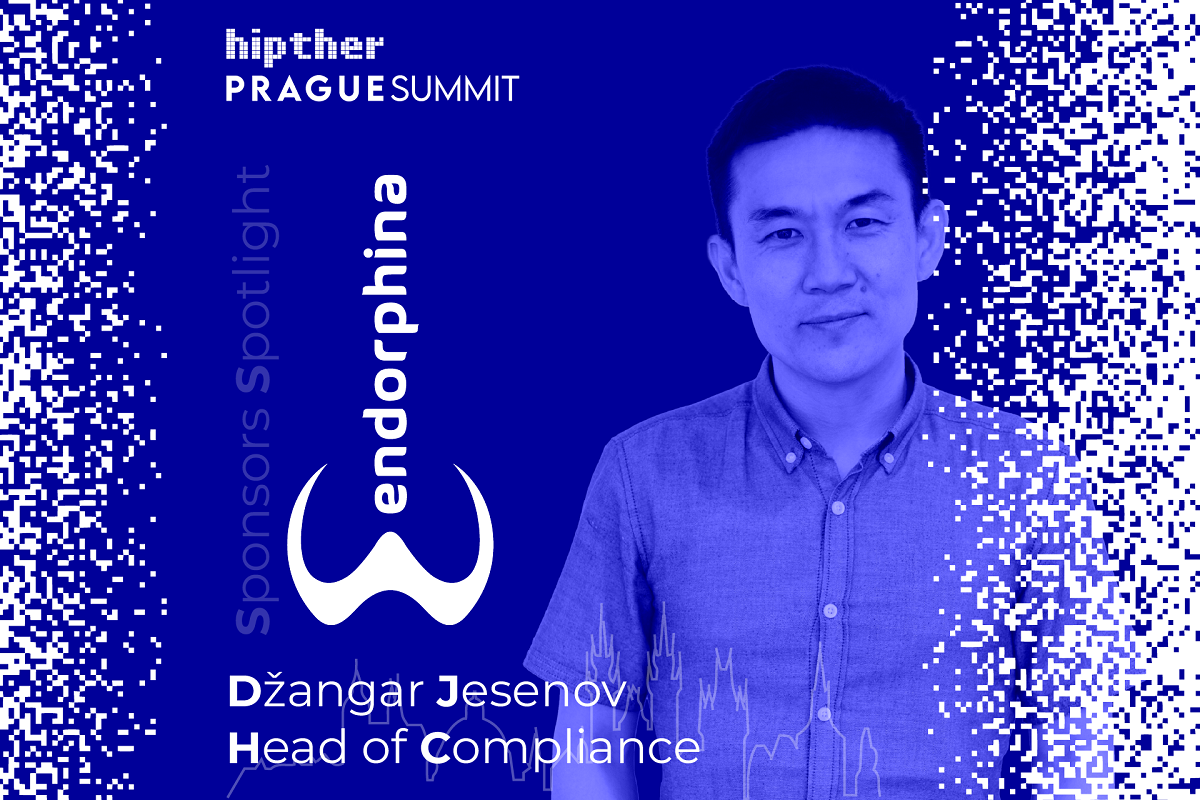
Ahead of the HIPTHER Prague Summit 2026, we speak with Džangar Jesenov, Head of Compliance at Endorphina, to explore how the company approaches regulatory excellence, market expansion, and certification in an increasingly complex global iGaming landscape – and how strong compliance frameworks support sustainable growth across Tier-1 European markets.
You have been leading Endorphina’s compliance function since 2021. How has the regulatory landscape in Europe evolved during this period, and what shifts have had the biggest operational impact on suppliers?
If I were to compare Endorphina in 2021 and Endorphina in 2026, I would describe them as two fundamentally different projects that nevertheless share the same core identity. The primary objective remains unchanged. However, the tools, scope, and operational framework used to achieve that objective have evolved significantly.
The development of the project reflects various external factors, including increasingly stringent regulatory requirements across multiple jurisdictions, technological advancements particularly within the financial sector and, importantly, substantial strengthening of human resources. Ultimately, people remain the most critical element in any successful project.
– From a regulatory perspective, I would particularly highlight the introduction and expansion of B2B licensing policies
Across jurisdictions on different continents, and the increased responsibility placed on game suppliers.
– Most notably, the heightened focus on player protection and security
In my view, enhanced player safety is one of the most important developments in the industry. Delivering engaging, high-quality games that are fully compliant with applicable legal frameworks is the foundation of any successful online platform and this is a commitment we uphold 24/7/365.
Endorphina has successfully expanded its presence across Tier-1 European markets. From a compliance perspective, what are the key pillars that enable smooth market entry and long-term sustainability?
In practice, there are unfortunately no “miracle tools” that would allow us to operate seamlessly at the highest regulatory level.
– I may not be saying anything new or particularly surprising here, but behind every jurisdiction we enter lies a substantial amount of work
Each market requires extensive hours of analysis, including a detailed review of regulatory obligations, comparison of local data requirements and reporting outputs, development of internal policies tailored to the specific regional framework, structured internal data sharing across project teams, and the implementation of oversight mechanisms to ensure compliance with newly introduced rules.
There is a significant amount of daily routine involved continuous processes, reporting, analysis, and, where necessary, re-implementation of procedures, including updates or revisions of internal regulatory frameworks.
Certification and regulatory alignment remain major challenges for many suppliers. How does Endorphina structure its internal processes to ensure efficiency while maintaining full regulatory integrity?
With the development of regulatory obligations, our practices in this area are also evolving. Compliance in the gambling business matures like fine wine. The more stable your team is, the stronger your position on the market becomes. Today, regulations are being introduced in many new jurisdictions where gambling was completely prohibited just a few years ago, and I see this as progress from a regulatory perspective.
– Our internal processes are continuously evolving toward the automation of data that does not require increased attention
Human resources are instead focused on information that is more relevant and requires deeper integrity.
With increasing focus on information security, responsible gaming, and technical standards, how do you see the role of compliance teams evolving within modern iGaming organisations?
As regulatory obligations continue to evolve, so does our practical experience in this area. Compliance in the gaming industry matures over time – much like fine wine.
– The more stable and experienced your team is, the stronger your position in the market becomes
Today, regulation is being introduced in many new jurisdictions where gambling was completely prohibited just a few years ago. I see this as a positive development and a clear indication of progress from a regulatory perspective.
Endorphina has built a reputation as a trusted slot provider with a strong global partner network. How should compliance, product development, and commercial teams collaborate today to support scalable growth?
As Head of Compliance, I believe scalable growth is only achievable when compliance, product development, and commercial teams operate in full alignment rather than in silos. Compliance must be involved from the earliest stages of market entry and product design to prevent delays, reduce regulatory risk, and support sustainable expansion.
– Product development should focus on modular, certification-ready solutions that allow efficient adaptation across multiple jurisdictions
Commercial strategy must remain closely aligned with regulatory feasibility, ensuring that opportunities are both attractive and compliant. Ultimately, stable and experienced teams are the key factor in building long-term, regulatorily resilient growth.
Looking ahead to the next 12–24 months, which regulatory or market developments should operators and suppliers be preparing for most carefully?
In this area, we are working very intensively. Looking ahead, I anticipate further increases in regulatory obligations, faster development of regulated markets, and structural changes in core online gaming products.”
– I expect deeper integration of games with the player environment, placing greater emphasis on individual profiling and personalization of each session
These evolving models will inevitably be reflected in regulatory frameworks, with a stronger focus on player protection and proper tax accountability. At the same time, regulators will increasingly compete to attract high-quality market participants, a category to which Endorphina clearly belongs.
In the near-term perspective, many of today’s processes will become standard industry practice, while additional requirements will emerge, particularly those linked to the accountability and oversight of key individuals within licensed entities.
Endorphina is the GamingTECH Awards Party & Ceremony Sponsor at HIPTHER Prague Summit 2026. What would you like operators, partners, and industry peers to take away from engaging with your team during the event?
Thank you for the opportunity to be among the first to welcome our friends. First and foremost, I would like to thank everyone who will be joining us in person in one of the most beautiful cities in the world, Prague.
I wish all participants a truly enjoyable experience.
– Make the most of every moment spent among inspiring people
Boost your personal endorphin levels and take the opportunity to get to know the Endorphina team more closely.
The post Endorphina Compliance Strategies Explained ahead of HIPTHER Prague Summit appeared first on Eastern European Gaming | Global iGaming & Tech Intelligence Hub.
AI
FlexPlay: building a platform made to grow with its partners
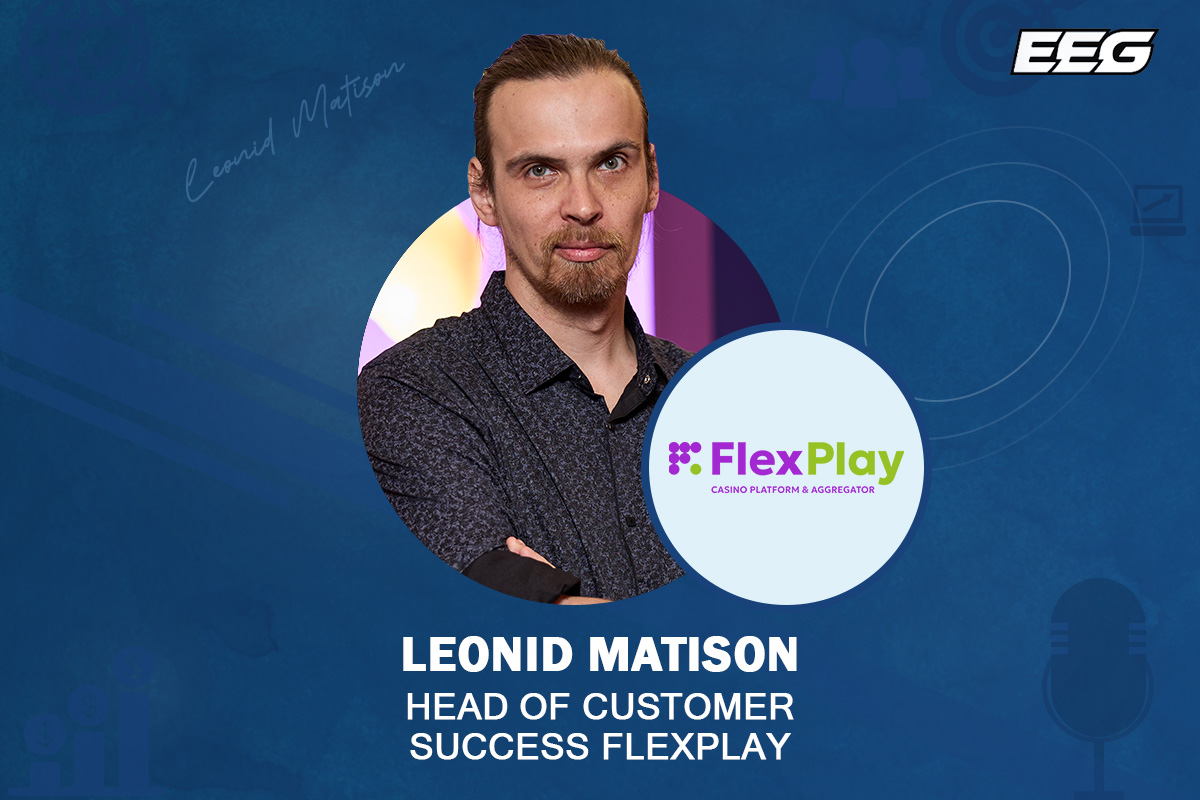
FlexPlay is entering a new phase with the launch of its own casino platform. Leonid Matison, Head of Customer Success, speaks with EEGaming about what inspired the company’s evolution, how it is helping partners adapt to change, and why a focus on flexibility, creativity, and collaboration is driving its vision for the future.
What inspired the move into the platform space, and how did that background shape your approach to creating it?
FlexPlay was born from EvenBet Gaming out of working closely with operators and studios as an aggregator, so we had a very clear view of where existing platforms were falling short. Many operators were forced to adapt their business models to rigid technology instead of the other way around.
Moving into the platform space was a natural evolution. We wanted to build a product that reflects how the market actually works today: fragmented regulation, fast-changing player behaviour, and the need to launch, test, and adapt quickly. That background shaped our approach significantly. Instead of building a “one-size-fits-all” platform, we focused on modularity, flexibility, and speed, so operators can grow without having to rebuild their infrastructure every time their strategy changes.
The platform market is full of established names. What makes FlexPlay stand out, and what kind of identity are you building for the brand?
Our differentiation isn’t about being louder or bigger — it’s about being more adaptable. FlexPlay is designed as a partner-centric platform, not a closed ecosystem.
We are building an identity around flexibility, transparency, and collaboration. Operators can customise their product, UX, content strategy, and growth roadmap instead of fitting into predefined templates. Commercially, we also remove unnecessary pressure at early stages, for example with models where partners don’t pay content fees until they actually start growing.
In a crowded market, identity comes from how you work with partners day-to-day, not just from features on a website.
You have described FlexPlay as a platform that “evolves alongside its partners.” What does that look like in practice for operators working with you?
We don’t treat launch as the finish line. We stay actively involved after go-live.
Operators receive ongoing support in analysing performance, adjusting content portfolios, testing new mechanics, and refining player engagement strategies. Our platform allows operators to add, remove, or prioritise content quickly, run experiments, and respond to real player data instead of assumptions.
We also actively listen to partner feedback and translate it into platform improvements. If a feature or workflow doesn’t serve operators in real conditions, we adjust it.
How does that flexibility help brands entering fast-changing or emerging markets where conditions can shift quickly?
Emerging markets rarely follow a stable or predictable path. This year, we are going to SiGMA Africa for the first time, and this continent is just the right example of how quickly and often market transforms. Regulation changes, payment preferences evolve, and player behaviour can shift very quickly.
FlexPlay’s flexibility allows operators to adapt without disruption: adjusting payment flows, reconfiguring bonuses, changing content focus, or localising UX. The platform isn’t locked into rigid structures, so operators can react to market signals in weeks rather than months.
This is especially important for brands entering highly volatile markets in Africa or LatAm, where the ability to pivot often determines success.
AI is a hot topic right now. How are you exploring its potential at FlexPlay, and what do you find most exciting about how it can genuinely support operators and players?
We approach AI very pragmatically. For us, it’s not about replacing people or creating black-box systems, but about enhancing decision-making.
We are exploring AI in areas like player segmentation, behavioural analysis, and content recommendations. It may help operators understand what players actually want and when. AI can also support smarter lobbies, more relevant promotions, and better detection of engagement patterns.
What excites us most is AI’s ability to reduce noise. It can highlight what truly matters and help them act faster and more confidently. But it can’t and will not fully replace strategic decision-making by humans.
Personalisation has become an essential part of modern player engagement. What does it mean to you in practice, and how is FlexPlay helping operators bring it to life?
For us, personalisation means relevance. Not just visuals or messages, but the entire player journey. FlexPlay enables operators to segment players based on behaviour, preferences, and performance, and then tailor content, bonuses, and communication accordingly. This helps players discover games that actually match their interests instead of scrolling through endless lobbies.
Good personalisation improves retention and trust. Players feel understood rather than pushed, and operators benefit from stronger long-term engagement.
But we suggest avoiding over-personalisation: if the players see only the recommended “long tail”, it may affect the operator’s revenue. Manual curation in addition to personalisation (like featuring a seasonal game during a holiday, or an operator’s personal favourite) allows for strategic promotions and branding.
Growth can be exciting but also challenging for operators. How do you and your team at FlexPlay support partners as they take that next step?
Growth often exposes weaknesses in technology or strategy. Our role is to help operators scale without losing control.
We support partners with analytics, reviews, and strategic guidance, helping them prioritise what to scale and what to optimise first. Technically, the platform is built to handle growth without forcing structural changes. Commercially, we remain flexible so that a transition is easier for operators.
Looking ahead, what are the key milestones or developments you are focused on for the year ahead?
Our focus is on deepening platform intelligence and partner value. This includes expanding AI-driven tools, improving content discoverability, and enhancing automation where it adds efficiency.
We are also investing in better insights for operators: not just reporting, but actionable recommendations that help them make smarter decisions faster.
Another priority is continuing to refine our platform based on real partner use cases, not theoretical ones.
And finally, when you think about FlexPlay’s future, what do you hope the company will represent within the wider iGaming industry?
I hope FlexPlay will be seen as a trusted growth partner — a company that helped operators build sustainable businesses rather than short-term results.
In an industry that often focuses on speed and scale, we want to represent balance: technology that adapts, content that makes sense, and partnerships built on mutual success.
If operators look back and say, “FlexPlay helped us grow the right way,” that will be the real measure of success.
The post FlexPlay: building a platform made to grow with its partners appeared first on Eastern European Gaming | Global iGaming & Tech Intelligence Hub.
boutique studios
Movers and Shakers: The blueprint for boutique studios looking to crack America
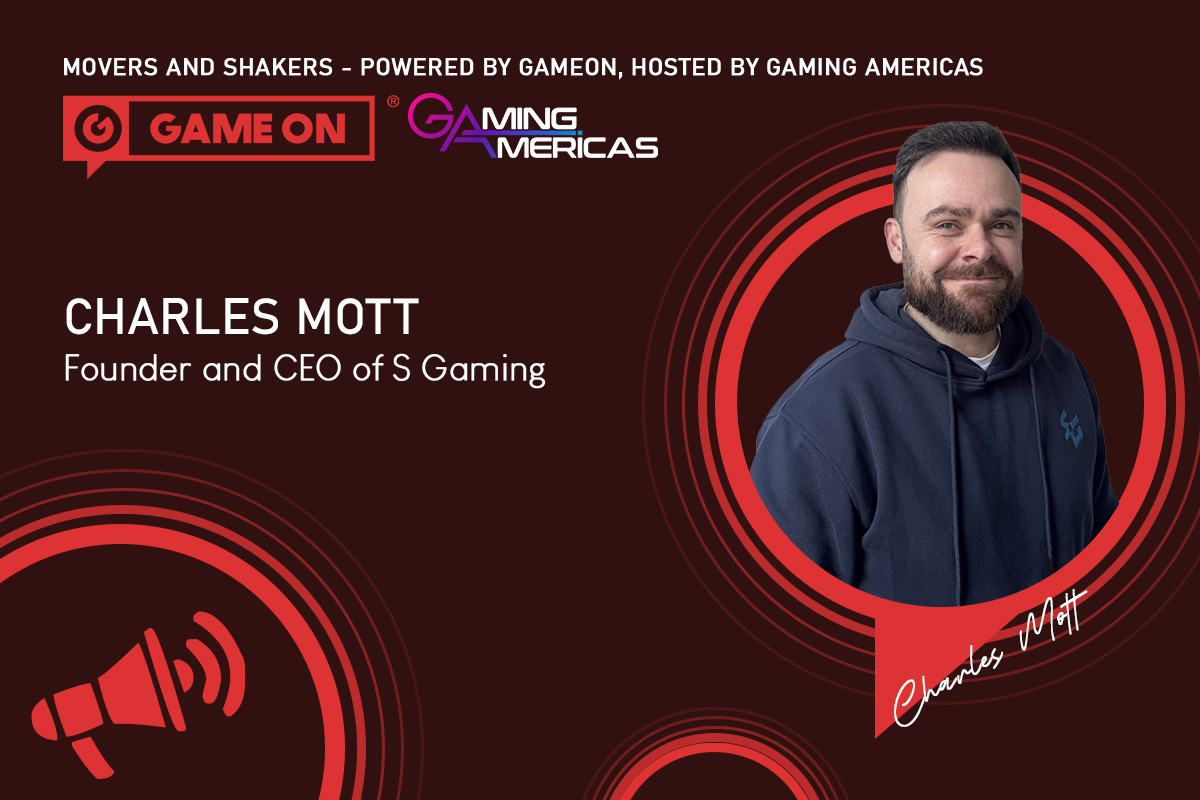
“Movers and Shakers” is a dynamic monthly column dedicated to exploring the latest trends, developments, and influential voices in the iGaming industry. Powered by GameOn and supported by HIPTHER, this op-ed series delves into the key players, emerging technologies, and regulatory changes shaping the future of online gaming. Each month, industry experts offer their insights and perspectives, providing readers with in-depth analysis and thought-provoking commentary on what’s driving the iGaming world forward. Whether you’re a seasoned professional or new to the scene, “Movers and Shakers” is your go-to source for staying ahead in the rapidly evolving iGaming landscape.
Charles Mott, Founder and CEO of S Gaming, says finding success in the US is a tough task, but that studios who can replicate the magic of the casino floor have what it takes to make it stateside
There are plenty of European studios that have set their sights on finding success in the US, but very few have actually managed to achieve it. This is because they are making a common mistake, and that’s failing to translate the preferences of US slot players into their games.
For more than a decade now, the UK and European markets have been defined by “the chase” – high volatility slots with massive, infrequent max wins and jackpots that deliver anticipation and thrills, but that also exhaust the player’s balance in minutes.
But if you walk on to the floor of any Las Vegas casino, the atmosphere is different. It’s about “time at machine”. It’s the neon, the regular dopamine hits of smaller wins and the ability to make $100 provide an entire evening’s worth of entertainment.
As the US market increasingly moves to online, with more states embracing regulated iGaming, it’s no longer finding its feet with players now actively looking for a digital version of the land-based soul they have loved for many years.
Moving away from the “big win” to the “long session”
US players have been culturally conditioned by the physical casino experience. Unlike the high-stakes digital environment of Europe, the American player often views slots as a leisure activity rather than a jackpot hunt.
This is why S Gaming has focused on fun, entertainment and sustainability, with our games matching the “steady tortoise” cadence of land-based slot machines. They still deliver lots of big win potential, but across longer and more engaging sessions.
For operators like BetMGM and Fanatics, both of which we’ve recently partnered with, it’s not just about fun, it’s about retention.
A player who loses their balance in three minutes is a churn risk, but a player who wins small, frequent prizes stays in the ecosystem for longer and ultimately generates a much higher lifetime value.
Efficiency over ego
But it’s not just about having the right games, distribution is also key to cracking America. This is a notoriously difficult market because it’s not one jurisdiction, it’s five (and counting) regulatory islands and in each, you need to secure regulatory approvals.
This is actually a moat that keeps many smaller studios out. It’s an issue we had to overcome, and ultimately looked for a partner that could help us bridge the gap. Our agreement with Gaming Realms allows us to use its remote game server and licences to launch into US states.
This “Infrastructure-as-a-Service” model allows a studio to focus on “game grammar” (math and art) while the partner handles the “plumbing” (compliance and connectivity). It’s the leanest way to hit the ground running with a tier-one operator across multiple states simultaneously.
Why tier ones are buying in
You might be wondering why a tier one giant like BetMGM has joined forces with a boutique UK studio and facilitated its launch into the US.
But the reality is that operators are fighting soaring acquisition costs right now and this means they no longer want more games, they want differentiated games that reduce churn and keep players coming back for more.
Our focus on sustainable entertainment aligns with current US regulatory requirements and the focus on responsible gaming. Games designed for longer, lower stakes sessions are inherently “safer” and more palatable to regulators and risk-averse operators alike.
And they just hit the mark more with players. Sure, winning is a big part of playing online slots, but how you get to the win and the perceived entertainment value is now just as if not more so important – not just in the US but in the UK and Europe, too.
The data-driven evolution
Success does not come from a single launch – it comes from having a feedback loop. We now have a handful of games live in the US market, including our flagship Triple 7 Jackpot title, from which we are gathering real-time data on player behaviour.
This is allowing us to move from “what we think players want” to “what the data tells us they love” and this in turn is allowing us to refine our product roadmap and the games we are producing for the US market, ensuring each title is more culturally resonant than the last.
The new era of transatlantic growth
Cracking America in 2026 isn’t about having the loudest brand of the biggest marketing budget – it’s about understanding the psychology of the casino floor.
The studio’s that succeed will be those that realise the US player isn’t looking for a new way to gamble, they’re looking for a digital version of the “Vegas” feeling they’ve known and loved for decades.
The post Movers and Shakers: The blueprint for boutique studios looking to crack America appeared first on Americas iGaming & Sports Betting News.
-

 iGaming7 days ago
iGaming7 days agoPRAGMATIC PLAY UNEARTHS PROGRESSIVE MULTIPLIERS IN ROLLING IN TREASURES
-

 Comatel6 days ago
Comatel6 days agoCOMATEL CELEBRARÁ UNA FIESTA PARA CIENTOS DE OPERADORES TRAS FINALIZAR EL PRIMER DÍA DE LA FERIA ESPAÑOLA, INTERAZAR
-

 Booming Games7 days ago
Booming Games7 days agoBooming Games Introduces Instastrike, the Latest Diamond Hits Trio
-

 ELA Games7 days ago
ELA Games7 days agoELA Games Powers the Reels with Retro-Electric Slot “Rapid Wild”
-

 Africa7 days ago
Africa7 days agoGaming Realms Makes South African Debut in Partnership with Hollywoodbets
-

 Alex Green Vice President Games at ZEAL7 days ago
Alex Green Vice President Games at ZEAL7 days agoWunderino Adds ZEAL’s Premium Slots as Partnership Kicks Off
-

 Blueprint Gaming7 days ago
Blueprint Gaming7 days agoNew collect modifiers and dual bonus offering star in Blueprint Gaming’s King Kong™ Splash
-

 Brasil6 days ago
Brasil6 days agoBrasil evita choque fiscal y apuestas entran en fase reputacional en LATAM








